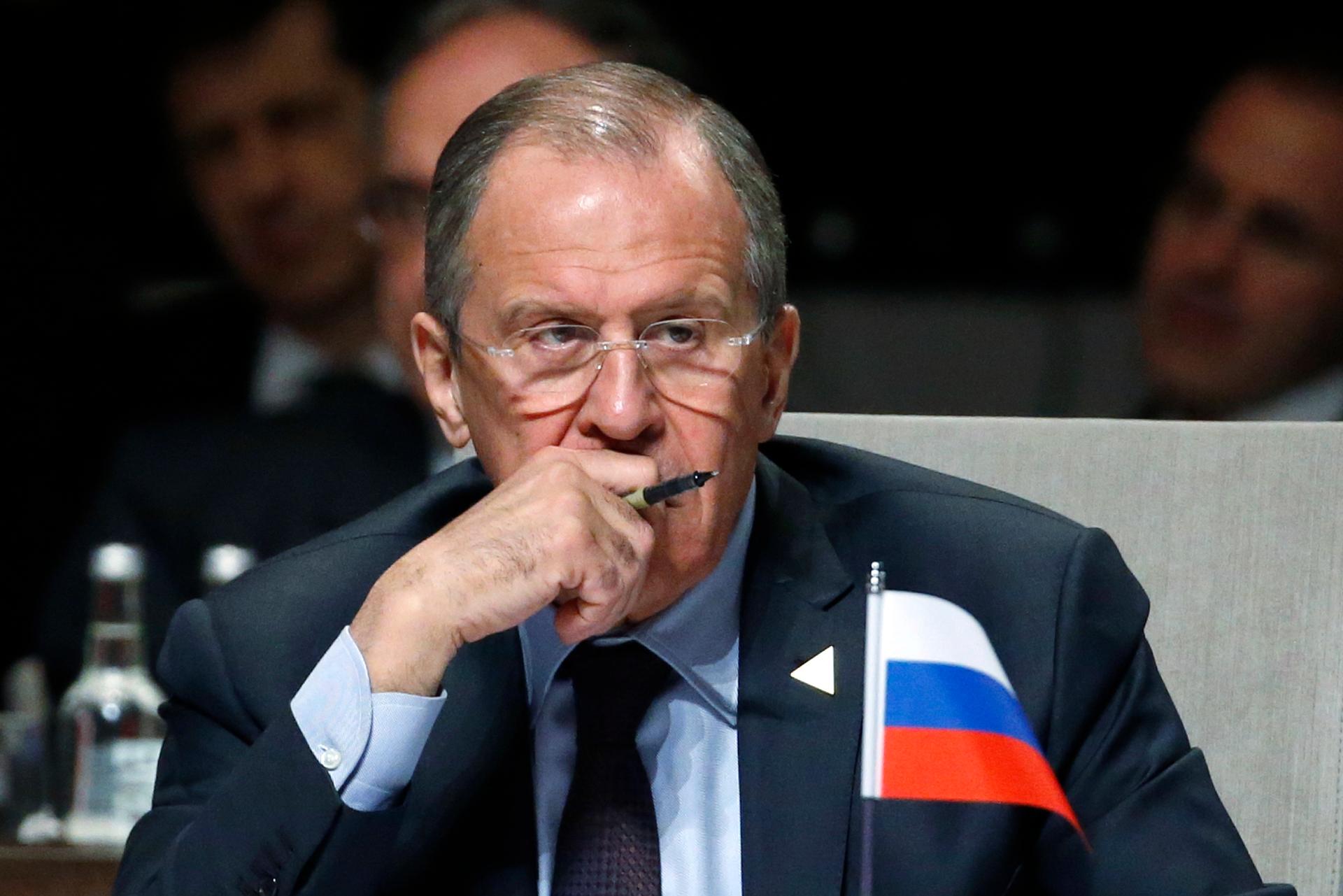Meet the hard-charging Russian diplomat pushing Putin’s assertive foreign policy
Russian Foreign Minister Sergey Lavrov attends the opening session of the Nuclear Security Summit in The Hague March 24, 2014.
It's said diplomacy is a delicate dance. And since 2004, any dance with Russia has gone through one man: Sergey Lavrov.
He's a hard drinking, heavy smoking holdover from the Soviet era. He likes to portray himself as the grownup in the room.
Take the recent expulsion of Russia from the G8 after Moscow's takeover in Crimea. Lavrov responded with a shrug, calling the G8 an "informal club."
Susan Glasser, editor of Politico Magazine, met with Lavrov as part of profile story she did before the Crimea incident and says the striking part about Lavrov is the clarity of his vision.
“In some ways, it’s chilling to look at it in retrospect,” she says. “He made the case that, across the broad swath of the globe, Russia was back.”
Lavrov told her that, after the indignities following the collapse of the Soviet Union, Russia had composed itself and was now ready to assert itself.
He happens to be the best person suited to execute this plan, she says. He was born in Moscow and trained under the Soviet-era rulers.
Glasser added that he is very much a product of the Soviet Union. He’s the longest serving, post-Soviet, foreign minister. He’s a fixture on the international stage. But he doesn’t see himself as an ideologue, just a stone-cold realist.
Russia’s national interests always take priority. He’s in charge of sitting at the table with foreign leaders and playing the best hand Russia has, diplomatically speaking, she says. And lately, that hand hasn’t been all that great.
“He understands, like President Putin, that Russia does not have the power that the Soviet Union did at its apex of its influence,” she says. “But certainly it is going to be much more aggressive in asserting its own area of influence.”
As for his relationship and position in Putin’s Kremlin, Glasser says it’s hard to tell since the Kremlin is an opaque place. But she thinks Putin is firmly in control and that Lavrov is influential.
Lavrov has certainly protected his turf. He’s held onto the top diplomatic spot for more than a decade. Glasser says that’s saying something in the Byzantine court of Russian politics. Lavrov has done this by proving his loyalty to Putin. And he gained insight, as former ambassador to the United Nations, into how the Western powers will respond to various actions. “So he’s able to play Russia’s maximum advantage,” she says.
One thing he does to infuriate others is list off Russian objectives at various negotiations. So the big story could be genocide in Syria, but Lavrov will focus on his list of issues with the same intensity. The guy sticks to his scripts.
“He doesn’t like to move off them,” she says. And she experienced that in her interview with him.
Glasser says he came prepared to talk. But toward the end of the interview, she asked him a couple of innocuous questions. Lavrov lost it. He tore the lapel microphone off and stormed out. She says it’s the kind of petulant behavior that American diplomats are used to.
Not exactly adult-like, but Glasser warns that America should pay attention to what he says.
She thinks many people, including herself, discounted the "chilling picture of a globally-assertive Russian foreign policy that Lavrov," she says, "went out of his way to paint for me a year ago.”
Our coverage reaches millions each week, but only a small fraction of listeners contribute to sustain our program. We still need 224 more people to donate $100 or $10/monthly to unlock our $67,000 match. Will you help us get there today?
